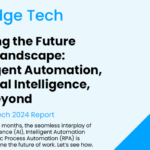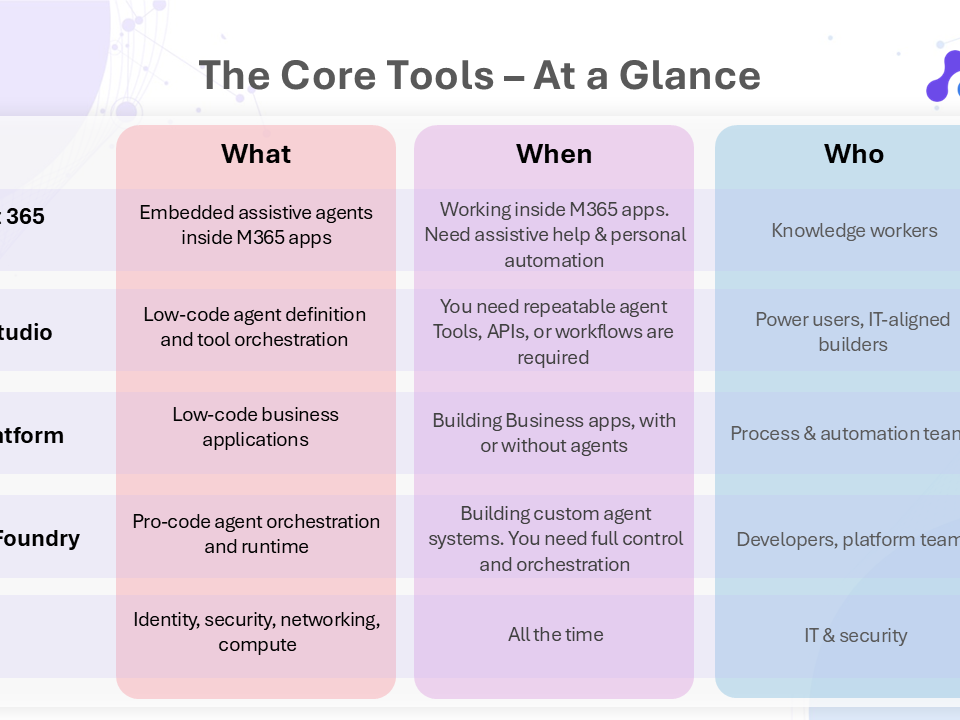Introduction
As a professional in Finance, Accounting or Insurance, you face a unique set of challenges. Your teams are constantly under pressure to be effective and agile in an ever-changing landscape of business needs, market trends, and regulations.
At a time when financial transactions happen in the blink of an eye, processes and decisions need to run like clockwork. Mistakes can be costly, not just financially, but also in terms of client trust. While these challenges are daunting, they also present opportunities for innovative solutions that can revolutionise the way you approach your work.
Robotic automation in finance, accounting and insurance
Automation solutions provide a pathway to streamline your operations for greater accuracy and efficiency, with McKinsey estimating that as many as 42% of finance activities can be fully automated.
A great starting point for any business looking to step up its automation game is Robotic Process Automation (RPA). This technology has proven to offer significant ROI, with Automation Anywhere reporting that businesses typically achieve a 250% ROI with payback periods of six to nine months after deploying RPA solutions.
Here at jaam, we specialise in implementing RPA for accounting, finance, insurance and many other industries. Our solutions are designed to enhance operational efficiency, improve customer satisfaction and ensure compliance, all while keeping costs in check. We believe the real magic of RPA in finance happens when you pair the right system with top-notch people.
In this blog, we explore what RPA is and how it can help you cut costs, save time, reduce risks and, importantly, make your processes more accurate. This means your team can focus more on the strategic work that really makes a difference.
Why RPA in financial services?
RPA is a form of business process automation technology that employs software robots to execute the routine, rules-based tasks that are time-consuming for humans. By adopting RPA, finance, accounting and insurance teams can streamline operations, reduce the risk of errors, and free up human employees to focus on more complex, creative tasks that add greater value.
Another major advantage is RPA’s compatibility with existing systems. This makes RPA a cost-effective solution, as it avoids the need for extensive changes to your current IT architecture. RPA interacts with systems at the user interface level, automating tasks across various applications without requiring deep system integration.
Insurance RPA: top use cases

By automating key tasks, RPA insurance solutions are speeding up processing times and enhancing accuracy in a sector known for its data- and document-heavy processes. Here are two common use cases:
- RPA-assisted underwriting | Underwriting requires gathering and analysing large amounts of data from various sources like medical records, credit scores and previous claims. RPA can automate this data collection process, pulling information from disparate sources quickly and accurately. Underwriting also involves a significant amount of paperwork. RPA can auto-populate forms, verify documents, and monitor whether all necessary paperwork is complete and accurate. In these ways, automation ensures underwriters have all the data and documentation they need, while reducing the chances of errors that can occur with manual processing.
- RPA insurance claim processing | Claims processing involves collecting and entering a vast amount of information from claim forms, emails and other documents. RPA robots can automate this data entry, extracting information from various sources and populating the necessary fields in the claims system. They can also validate that claims are being processed in a compliant manner, automatically checking whether all required documentation is present and correct. These capabilities speed up the end-to-end claims management process significantly, reducing the time customers have to wait for their claims to be resolved.
For instance, one global insurance provider decided to introduce RPA in its claims, sales and service departments to remove process bottlenecks and enhance staff productivity. Collaborating with UiPath, the firm was able to automate numerous repetitive manual tasks, resulting in an impressive reduction of around 18,000 labour-hours and achieving cost savings of £140,000, all within a span of six months.
RPA for accounts payable automation
RPA can be easily combined with other tools, such as optical character recognition (OCR) technology, to manage unstructured and semi-structured data, and transform your manual accounts payable processes into a streamlined, efficient workflow.
This enables:
- Automated receipt and data capture of invoices
- Invoice matching and verification against purchase orders and receiving reports
- Automated approval workflow aligned with organisational policies
- Facilitation of payment processing and integration with financial systems
- Transaction scheduling and ledger updating
- Post-payment reconciliation and record-keeping
- Management of exceptions by flagging discrepancies for manual review
A Fortune 500 company automated its invoice processing using UiPath’s RPA software, addressing the challenge of handling semi-structured data from numerous vendors. Initially, their accounts payable team manually extracted data from PDFs for entry into ERP systems. To enhance efficiency and speed, the company implemented UiPath Document Understanding. This solution, blending RPA and AI, automates document processing with software robots trained for fast, accurate data handling, thereby reducing errors and improving customer service. The outcome was impressive: a 70% reduction in invoice processing time and 85% accuracy in automated data collection.
The financial revolution: RPA in action
With around 80% of finance leaders either having implemented or planning to implement RPA, as reported by Gartner, it’s evident that RPA in finance and accounting is valued for its cost-saving benefits and ability to streamline complex processes.
Mitigating human error and data inconsistencies
By automating routine finance and accounting tasks like data entry, reconciliations and report generation, RPA reduces the risk of human error, ensuring higher accuracy and consistency in transactions, calculations and reports.
Overcoming overload, even during peak periods
RPA solutions are easily scalable, allowing for quick adaptation to new business requirements and regulatory changes. Even during peak times, RPA can manage the increased workload without additional strain on the team, maintaining smooth and efficient operations in dynamic business environments.
RPA in accounting – a raft of applications

In the accounting profession, RPA use cases range from simplifying routine tasks to managing complex compliance requirements. For example, robotic process automation in accounting is highly effective in gathering, organising and managing the necessary data for tax filings, in line with the latest compliance requirements. Automation not only speeds up the process, but also significantly reduces the likelihood of errors that can arise from manual handling.
Another valuable application of RPA for accounting is in managing expense reports. In this scenario, the software robot can be trained to:
- Automatically extract data from submitted expense receipts and claim forms
- Check each claim against the company’s expense policies for compliance
- Route compliant claims for approval and flag non-compliant ones for review
- Integrate approved claims into the accounting system for financial tracking
- Generate reports and analytics on expense claims for better expense management insights
Similarly, in payroll, RPA streamlines what is traditionally a time-consuming and error-prone process. An RPA solution can be configured to:
- Collect and verify data on hours worked, salaries, and bank details
- Calculate wages, deductions (taxes, benefits, etc.) and net pay
- Conduct compliance checks to ensure adherence to tax laws and employment regulations
- Initiate employee payments
- Generate payslips for employees
- Update payroll records in the accounting system and produce payroll reports
These are just a few examples of RPA in accounting. By automating these types of repetitive, time-consuming tasks, accounting teams can achieve substantial efficiency gains and ROI. For instance, one German accounting provider introduced a UiPath RPA solution to optimise end-of-month accounting tasks. This led to a:
- 75% reduction in manual effort
- 65% faster processing time
- 0% error rate
How we deploy RPA in financial services
jaam’s approach to RPA in financial services is holistic and forward-thinking, focusing on understanding, delivering and growing with our clients. We typically follow a three-step approach to RPA success:
- Understand:
First, we work to understand the processes that have been earmarked for automation. This includes assessing the resources and timelines required, and projecting the ROI. We use a blend of process mining, process mapping and our unique jaam Discover methodology to gain a holistic view of your needs and automation potential. - Deliver:
Next, our team draws on deep technology expertise and extensive project experience to ensure the successful delivery of your tailored RPA solution, no matter whether you’re looking to establish an RPA practice or need assistance with a specific business challenge. - Grow:
The journey with RPA doesn’t end with implementation. We provide ongoing support and guidance as you expand and enhance your RPA capabilities over time. As your business evolves, we’ll help you to ensure that your RPA solutions evolve with it.
Join forces with jaam to make your RPA project more efficient, accurate and scalable.
The future of finance: RPA as a game changer
In these ways and more, RPA is revolutionising finance, accounting and insurance. Its seamless integration with existing systems, such as OCR for data extraction, and its pivotal role in boosting accuracy and efficiency are prime examples of its transformative effect.
As the industries of finance, accounting and insurance continue to evolve, the significance of RPA in spearheading innovation, managing risk and ensuring operational excellence becomes increasingly clear. This technology is adept at adapting to new challenges, merging effortlessly with advanced solutions like AI to address more complex tasks and offer deeper insights.
By embracing RPA, organisations stand to gain immediate benefits in efficiency and cost savings, alongside long-term strategic advantages. At jaam, we’re committed to guiding you through this journey. Get in touch to discover more.






